Save money on food while traveling—food is easily one of the biggest expenses during your travel. Depending on where you’re staying and whether you eat out a lot, it’s not rare to exceed food’s expenses over your accommodation expenses. How to save money on food on a realistic scale? How much do you want to save? Do you have an idea of your budget, and is it realistic for your destination? Cutting down expenses on food during your travel does not have to be a chore. And along the way, you may even enrich your travel experience.
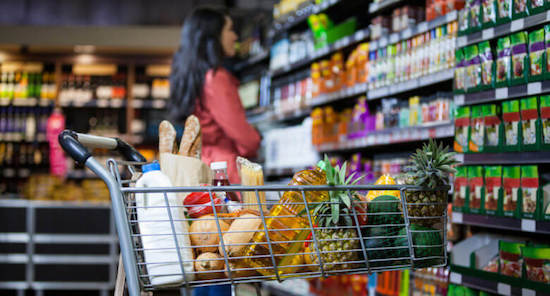
Before you go, create a budget for food!
This is what you need to do first and foremost as a part of your travel planning. Planning will give you a sense of control and a much better awareness over your financial state. Create a realistic budget for the entirety of your travel. Adjust when needed. When you plan to travel to different places, for example, food availability and prices may differ significantly. For instance, it would be so much more difficult to do grocery shopping at a remote area. You may only be limited on resort food. Or going to the local traditional market. Proper budgeting for your meal is more than just creating estimates. It involves some research that you need to do diligently. It may sound like a lot of work at first, but knowing what and where to shop and eat will ease your travel a lot.

Save money on food by grocery shopping
Why not do something you’ve likely always done at home while traveling? Grocery shopping will give you a much more intimate local experience. This mundane everyday life activity can become something rather interesting when you’re doing it at a new place. It’s not every day that tourists will go grocery shopping during their time vacationing.
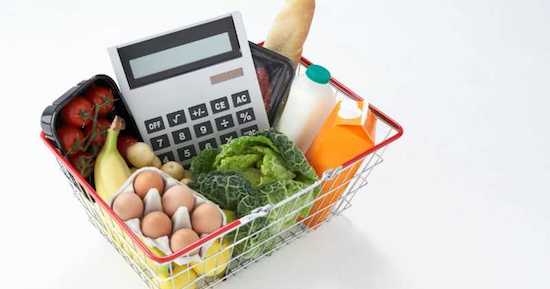
Doing what the locals do every other day is going to give you a rich experience. On top of that, you’ll have a much better idea of the general cost of food and ingredients. It’s an excellent way to save money on food during your travels. Needless to say, stuff at grocery stores are going to be so much cheaper. Shop with a calculator. Put numbers as you put your groceries in. This would give you an accurate amount of what you’re going to spend as it adds up.
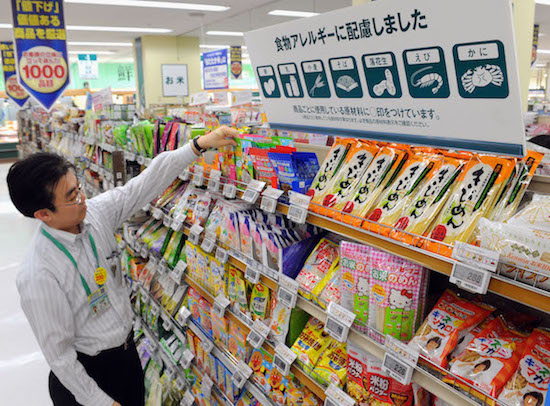
Stay at a place with a kitchen
Regardless of whether it’s a private kitchen provided in your room or a shared kitchen, having a kitchen is super convenient. The presence of a kitchen is a major game changer. A lot of kitchens at a hostel or airbnb would usually provide seasonings and some cooking essentials like cooking oil, soy sauce, and such.
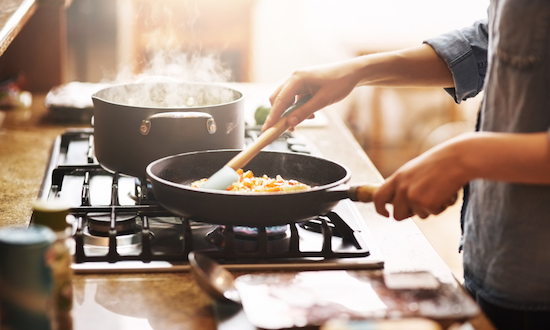
Make sure to set aside time to cook your meals. Since cooking frequently is just not viable when you’re traveling, plan to cook once a day or once every two days. Depending on what you want to eat and what ingredients available to you. It becomes a dozen times easier to save money on food when you’re traveling when you have access to a kitchen!
Save money on food by planning your meals
You can start planning your meal more realistically after you’ve gone to the grocery store. On top of saving money, planning your meals would save you a lot of time. You can freeze some food to be eaten later as well. Planning your meal would also let you eat healthier. As you won’t be running out of options nor ideas when you get hungry. You’ll be more at ease as you know you won’t stop at the nearest fast food chain once your stomach rumbles.
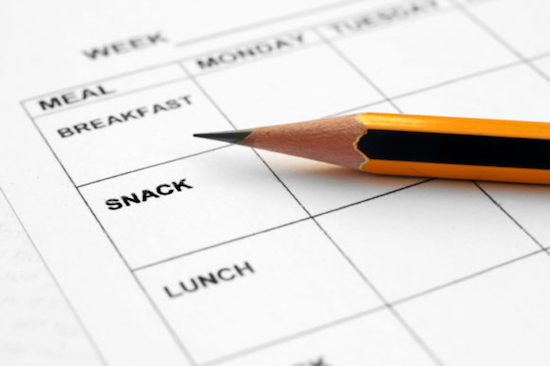
Bring your own food
It’s an old-age advice to save money on food expenses. There is nothing more straightforward to cut on food expenses than bringing your own food. This is particularly useful to prevent an over budget on snacks. Bring some healthy snacks with you like fruits. They’re both delicious and filling. Another tasty option to bring is dark chocolate. Chocolates don’t consume as much room compared to most items you can buy. Make sure to buy chocolates with over 90% cocoa content.
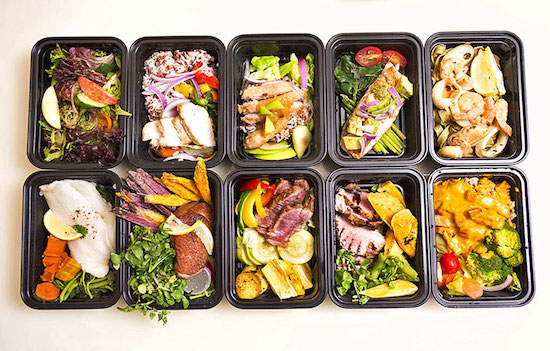
Bringing your own food during your travel would also give save you money during the time you have limited food options. Take airports, for example. Where you’re simply limited to pricey restaurants and even more overpriced mineral water. Having your own food with you would reduce the chance of impulsive buying. Depending on what you bring, it’s also an effective way on how to eat healthily. You’ll have more control over what you put inside your body. All in all, it’s a win-win situation on both saving money on food and eating healthy while traveling.
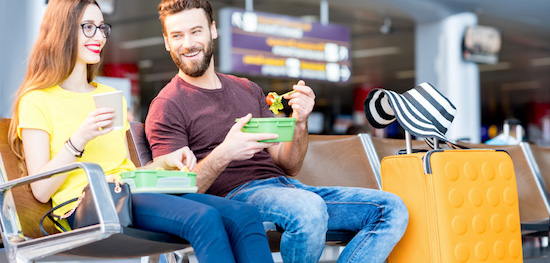
Eat a little and frequently
This is one of the ancient healthy eating pieces of advice that we’ve mentioned in How to Eat Healthy While Traveling. Eating a little but frequently is an effective way to keep you from snacking. Because what you’re doing is exactly that; snacking. Except healthier. This method would keep your stomach filled throughout the day with healthy food. It’s an effective way to maintain a good level of energy throughout the day as you explore your destination. This method is not only effective while you’re traveling. Try it at home too. The Japanese use a method known as “hara hachi bu” that roughly translates to “eat until you’re 80% full”.
Less eating out
This one is a no-brainer when you want to save money on food when you’re traveling. It does not mean you have to limit yourself to not eating out at all. Instead, reserve the time for eating at a restaurant or eating out in general when you’re meeting with friends. Make a point to eat out only on special occasions like a social activity.
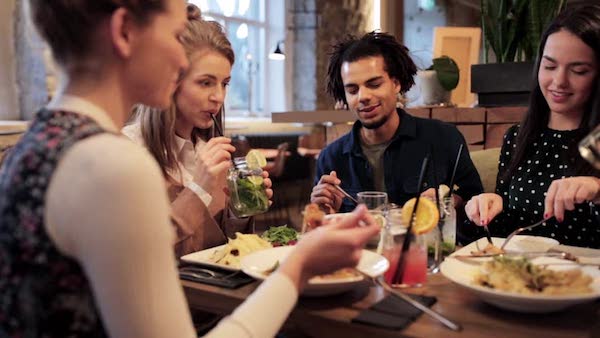
And don’t hop into a cafe or a restaurant every time you feel like you’re craving for a bite. The bits of snacks here and there is going to add up a lot. Set aside a budget for eating out. You can even include an eating out budget in your entertainment budget. Limiting yourself on an unrealistic extent may also lead to a poor spending. You can even feel a sense of guilt when you do spend some of your budgets for it. So, budget realistically according to your activities and your habits.
